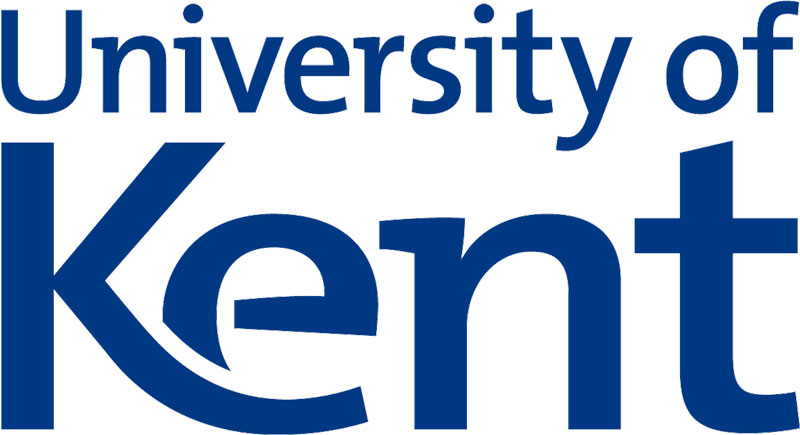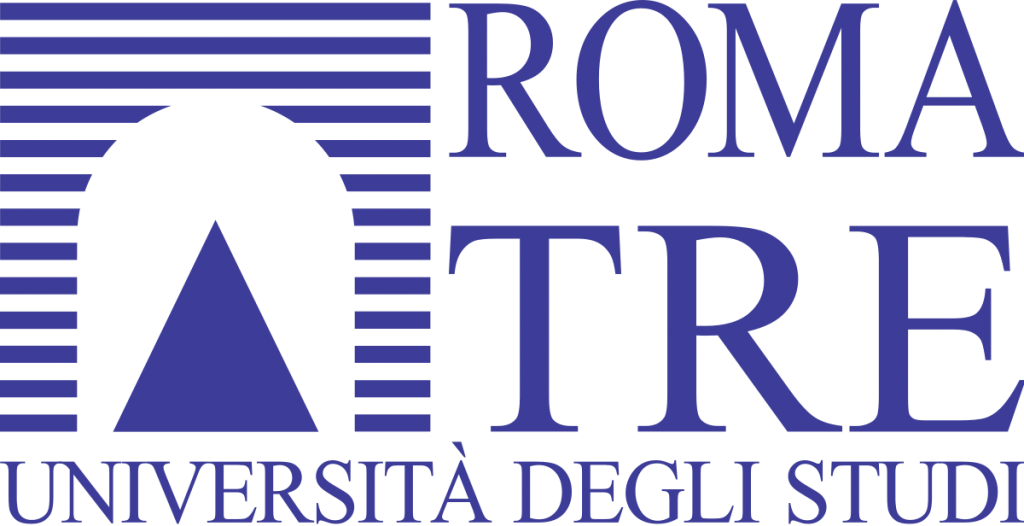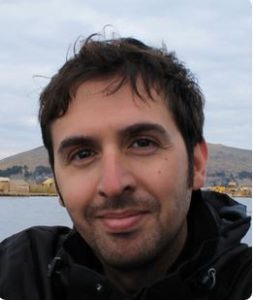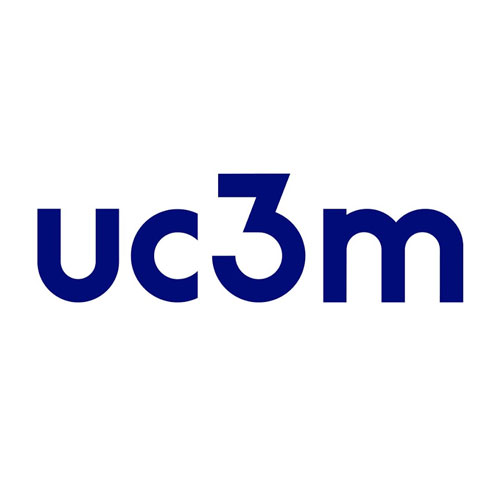Meet the Team
Beneficiaries

 Richard Guest is Reader of Biometric Systems Engineering and Deputy Head of School.
Richard Guest is Reader of Biometric Systems Engineering and Deputy Head of School.
He received a BEng (Hons) in Computer Science from the University of York in 1995. This was followed by a PhD in Electronic Engineering from the University of Kent in 2000. His research work is in the area of biometric technologies, examining aspects of systems deployment and algorithm development, usability, standardisation, sample quality and conformance. His work has also examined the use of human identification/verification mechanisms within automated processes.
He is a member of the UK Government’s Biometric and Forensic Ethics Committee and a core member of the Kent Interdisciplinary Research Centre in Cyber Security. He is also the Chair of the Training and Education Committee of the European Association of Biometrics (EAB) and a Fellow of the British Computer Society. He has had significant involvement with biometrics standards development as UK
Principal Expert to ISO/IEC JTC1 SC37.
He has attracted over £4M over the past 10 years from external sources of funding including EPSRC, EU, ESRC, Leverhulme and industry as PI of 20 separate research grants. He has published over 125 peer reviewed articles and his research featured in the Government Select Committee Report into the Future of Biometrics and also in the Government Chief Scientist’s Annual Report.
He currently the Project Coordinator for the AMBER EU Marie Skłodowska-Curie ITN in Mobile Biometrics (2017-2020) and is Kent PI on the EPSRC Hummingbird Project (2018-2019). He is also a member of the Kent academic team for the PriMa EU Marie Skłodowska-Curie ITN (2020-2023).
Research interests
Richard Guest has extensive research experience in the areas of image processing and pattern recognition specialising in biometric and forensic applications, His current research work is exploring the relationship between human and machine decision making processes, and issue concerning the use of mobile platforms for biometric authentication.
 Professor Farzin Deravi obtained his first degree in Engineering and Economics from the University of Oxford in 1981 and his M.Sc. in Electronic Engineering from Imperial College, University of London in 1982. From 1983 to 1987 he worked as a research assistant at the University of Wales, Swansea where he obtained his PhD and later joined the academic staff. In 1998 he joined UNIKENT where he is currently Professor of Information Engineering and Head of the School of Engineering and Digital Arts. He has chaired UNIKENT’s MSc programme in Information Security and Biometrics. He has supervised several PhD students to completion and acted as external examiner for research degrees both in UK and overseas. He is the Deputy Chair of the European Association for Biometrics and a Fellow of the Institution of Engineering and Technology.
Professor Farzin Deravi obtained his first degree in Engineering and Economics from the University of Oxford in 1981 and his M.Sc. in Electronic Engineering from Imperial College, University of London in 1982. From 1983 to 1987 he worked as a research assistant at the University of Wales, Swansea where he obtained his PhD and later joined the academic staff. In 1998 he joined UNIKENT where he is currently Professor of Information Engineering and Head of the School of Engineering and Digital Arts. He has chaired UNIKENT’s MSc programme in Information Security and Biometrics. He has supervised several PhD students to completion and acted as external examiner for research degrees both in UK and overseas. He is the Deputy Chair of the European Association for Biometrics and a Fellow of the Institution of Engineering and Technology.
 Annie Maingard is the project manager for AMBER and comes from a back ground in telecommunications. She has worked on previous EU funded projects at the University of Reading. Annie obtained her first degree in Zoology from the University of Reading, and subsequent MSC in Conservation from University College London. Annie has been in project management for over ten years and is an active member for the special interest groups within the Association of Project Managers.
Annie Maingard is the project manager for AMBER and comes from a back ground in telecommunications. She has worked on previous EU funded projects at the University of Reading. Annie obtained her first degree in Zoology from the University of Reading, and subsequent MSC in Conservation from University College London. Annie has been in project management for over ten years and is an active member for the special interest groups within the Association of Project Managers.

 Professor Patrizio Campisi is Full Professor at the Section of Applied Electronics, Dept. of Engineering at the Università degli Studi Roma Tre, Roma, Italy. His research interests are in the area of secure multimedia communications. Specifically, he has been working on secure biometric recognition, image deconvolution, image analysis, stereo image and video processing, blind equalization of data signals, and secure communications. He has been the General Chair of the seventh IEEE Workshop on Information Forensics and Security”, WIFS 2015, November 2015, Rome, Italy and General Chair of the 12th ACM Workshop on Multimedia and Security, September 2010 Rome, Italy. He is the editor of the book “Security and Privacy in Biometrics”, SPRINGER, July 2013, and co-editor of the book “Blind Image Deconvolution: theory and applications”, CRC press, May 2007, and of “High Dynamic Range Video, Concepts, Technologies and Applications”, Academic Press, 2016. He is currently Director of Student Services for the IEEE Signal Processing Society.
Professor Patrizio Campisi is Full Professor at the Section of Applied Electronics, Dept. of Engineering at the Università degli Studi Roma Tre, Roma, Italy. His research interests are in the area of secure multimedia communications. Specifically, he has been working on secure biometric recognition, image deconvolution, image analysis, stereo image and video processing, blind equalization of data signals, and secure communications. He has been the General Chair of the seventh IEEE Workshop on Information Forensics and Security”, WIFS 2015, November 2015, Rome, Italy and General Chair of the 12th ACM Workshop on Multimedia and Security, September 2010 Rome, Italy. He is the editor of the book “Security and Privacy in Biometrics”, SPRINGER, July 2013, and co-editor of the book “Blind Image Deconvolution: theory and applications”, CRC press, May 2007, and of “High Dynamic Range Video, Concepts, Technologies and Applications”, Academic Press, 2016. He is currently Director of Student Services for the IEEE Signal Processing Society. Dr Emanuele Maiorana received the Laurea Degree cumlaude in Electronics Engineering from Roma Tre University, Rome, Italy, in May 2004, and in April 2009 he earned the Ph.D. degree with European Doctorate Label. Since December 2010 he works as a research engineer at the Department of Engineering of Roma Tre University, Rome, Italy. He was the recipient of the Lockheed Martin Best Paper Award for the Poster Track at the IEEE Biometric Symposium 2007, and of the Honeywell Student Best Paper Award at the IEEE Biometrics: Theory, Applications and Systems conference 2008. He was a visiting researcher at the “Universidad Autonoma de Madrid”, in 2007 and 2008, at the ‘Universidad de Vigo’, in 2010, at the ‘University of Warwick’, in 2012, at the ‘Ecole Polytechnique de Nantes’, in 2013, at the ‘University of Twente’, in 2013, and at the ‘University of Salzburg’, in 2015.
He was involved in several national and international (FP7, H2020, etc.) research projects.His research interests are in the area of digital signal and image processing with applications to multimedia communications and security of telecommunication systems.Specifically, he has been working on biometric recognition and protection of biometric templates, high dynamic range images imaging and watermarking, synthesis of video textures, and stereo image analysis and enhancement.
Dr Emanuele Maiorana received the Laurea Degree cumlaude in Electronics Engineering from Roma Tre University, Rome, Italy, in May 2004, and in April 2009 he earned the Ph.D. degree with European Doctorate Label. Since December 2010 he works as a research engineer at the Department of Engineering of Roma Tre University, Rome, Italy. He was the recipient of the Lockheed Martin Best Paper Award for the Poster Track at the IEEE Biometric Symposium 2007, and of the Honeywell Student Best Paper Award at the IEEE Biometrics: Theory, Applications and Systems conference 2008. He was a visiting researcher at the “Universidad Autonoma de Madrid”, in 2007 and 2008, at the ‘Universidad de Vigo’, in 2010, at the ‘University of Warwick’, in 2012, at the ‘Ecole Polytechnique de Nantes’, in 2013, at the ‘University of Twente’, in 2013, and at the ‘University of Salzburg’, in 2015.
He was involved in several national and international (FP7, H2020, etc.) research projects.His research interests are in the area of digital signal and image processing with applications to multimedia communications and security of telecommunication systems.Specifically, he has been working on biometric recognition and protection of biometric templates, high dynamic range images imaging and watermarking, synthesis of video textures, and stereo image analysis and enhancement.Professor Dr Claus Vielhauer received both MSc and PhD in Electrical Engineering from Technical University Darmstadt. Besides his activities as senior researcher at OVGU, he has been appointed as full professor for IT Security at Brandenburg University in 2007. At both institutions, he has advised and supervised several PhDs to completion, in past and ongoing PhD by research projects. Further, he has served as examiner in several external European PhD student examinations and supervised and/or examined more than 90 MSc/BSc Theses. Teaching activities focus on Biometrics, Security and Forensic related courses at MSc/BSc level.

 Professor Andrzej Pacut received his MSc in Electronics in 1969, PhD in 1979 and DSc in 2000 (all from the WUT). He was awarded a Full Professor title by the President of Poland in 2011. Since 1969 he has been with WUT. He has held Visiting Professor positions at Brown University, USA and Oregon State University, USA. Adviser of six completed PhD dissertations (four awarded with honours) and five pending PhD dissertations. Adviser of numerous MSc/BEng theses in biometrics, machine learning, pattern recognition and modelling.
Professor Andrzej Pacut received his MSc in Electronics in 1969, PhD in 1979 and DSc in 2000 (all from the WUT). He was awarded a Full Professor title by the President of Poland in 2011. Since 1969 he has been with WUT. He has held Visiting Professor positions at Brown University, USA and Oregon State University, USA. Adviser of six completed PhD dissertations (four awarded with honours) and five pending PhD dissertations. Adviser of numerous MSc/BEng theses in biometrics, machine learning, pattern recognition and modelling.
 Professor Raul Sanchez-Reillo graduated in Telecommunication Engineering by the Polytechnic University of Madrid, obtaining his PhD at the same University in 2000, based on Biometric Authentication in Smart Cards. From 1994 he has been researching at the University Group for Identification Technologies, managing the group since 2000. He has supervised four PhDs to completion (three of them under International cooperation) alongside around 10 MSc and 80 undergraduate research projects.
Professor Raul Sanchez-Reillo graduated in Telecommunication Engineering by the Polytechnic University of Madrid, obtaining his PhD at the same University in 2000, based on Biometric Authentication in Smart Cards. From 1994 he has been researching at the University Group for Identification Technologies, managing the group since 2000. He has supervised four PhDs to completion (three of them under International cooperation) alongside around 10 MSc and 80 undergraduate research projects. Dr. Judith Liu-Jimenez obtained her degree in Telecommunication Engineering in 2004 at Polythecnic University of Madrid. She has been working since 2004 at University Carlos III of Madrid, where she obtained her PhD on Electronics in 2010. Her work in focused on Biometrics and hardware/software codesign, specifically in Iris Biometrics. She has participated in several National and European funded projects, working in ID management, evaluation and anti-spoofing mechanisms.
Dr. Judith Liu-Jimenez obtained her degree in Telecommunication Engineering in 2004 at Polythecnic University of Madrid. She has been working since 2004 at University Carlos III of Madrid, where she obtained her PhD on Electronics in 2010. Her work in focused on Biometrics and hardware/software codesign, specifically in Iris Biometrics. She has participated in several National and European funded projects, working in ID management, evaluation and anti-spoofing mechanisms.





Partners
 Namirial is a software company that develops and sells its own enterprise solution for Digital Transaction Management (DTM) through direct and indirect sales channels. Among other services, Namirial DTM provides IT solutions to capture legally compliant electronic signatures, manages and tracks the flow of documents between contractual parties, conducts secure document-based transactions, and guarantees the secure storage of data. Namirial and its predecessors have a combined history of more than 10 years of digital signature expertise.
Namirial is a software company that develops and sells its own enterprise solution for Digital Transaction Management (DTM) through direct and indirect sales channels. Among other services, Namirial DTM provides IT solutions to capture legally compliant electronic signatures, manages and tracks the flow of documents between contractual parties, conducts secure document-based transactions, and guarantees the secure storage of data. Namirial and its predecessors have a combined history of more than 10 years of digital signature expertise.
Skalli Networks GmbH is an innovation-oriented IT service provider and IT systems integrator with strong relation to the Berlin-Brandenburg region. Secure and privacy preserving technologies becomes more and more relevant and important in our service and product portfolio because of the confidential nature of customer data in mobile context. As a consequence of that our company is increasingly involved in cooperative research projects, e.g. in the domain of homomorphic encryption for biometrics and other sensitive data. Our strategy is to strengthen research and development in future.

NEXT BIOMETRICS AS is a leading provider of fingerprint sensors for various market segments including notebooks, smartphones, smart cards, tokens, time and attendance and others. The company is headquartered in Oslo, Norway, with research and sales offices in Prague, Seattle, Shanghai and Taipei. The company focuses on development and distribution of the NEXT Active Thermal™ technology and products thereof. NEXT brings affordable quality fingerprint sensing to mass markets and into new solutions. Benefit for society is better user experience, lower cost and convenience
![]()
Eleven Paths is a company integrated into the Telefónica matrix. Since June 2013, Eleven Paths has continuously invented and developed new and innovative products that challenge security and redefine the relationship between security and people. At Eleven Paths the main objective is the creation of security products that redefine how we deal with current and future threats, as well as to enable notions such as security or privacy for all persons by default, bringing these concepts to them without interfering in their professional or private activities.

IBM is a leading systems integrator and developer of biometric systems. These include the UK’s Visa Checking system which provides ongoing support to the UK Border Force Agency. This is a live system that covers all aspects of biometric matching to support national objectives of border control. IBM has a global research and development presence of over 35,000 researchers. IBM has led the number of USA patents applied for in a year for over 10 years. IBM Research has a large number of research groups and has developed privacy enhancing technologies such as cancellable biometrics and fully homomorphic encryption. IBM is a global business headquartered in the USA. i2 is a subsidiary of IBM with a research presence in Cambridge that is actively pursuing face recognition research activities
Project Committees
In order to have external feedback on the progress of AMBER, an Advisory Board has been put together as an independent assessment body. The Advisory Board comprises of:
Dr Sambit Bakshi – Assistant Professor, Social Security and Information Analytics, Department of Computer Science and Engineering, National Institute of Technology Rourkela, India.
Professor Stephen Elliott – Technology, Leadership and Innovation, Centre for Education and Research in Information Assurance and Security, Purdue University, USA.
Dr Tony Mansfield – PRS Biometrics, National Physical Laboratory, London.
Professor Young-Bin Kwon – School of Computer Engineering, Chung-Ang University, South Korea
